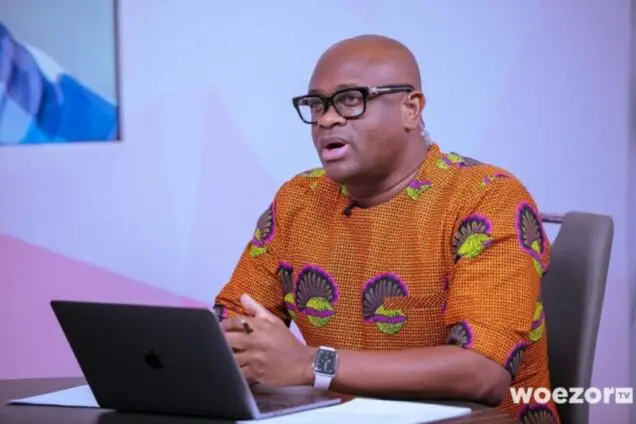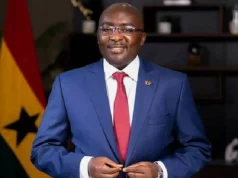In Ghana’s bustling media landscape, where politics and broadcasting often collide, a new storm is brewing—and it’s not about signal interference.
WoezorTV, a private television station with strong ties to President John Mahama and the National Democratic Congress (NDC), has found itself at the center of a heated debate. Critics argue that the station is overshadowing the state-owned Ghana Television (GTV), with some even claiming it’s poised to “take over” the national broadcaster. But is this a genuine concern or just political noise?
Stan Dogbe, Deputy Chief of Staff under the Mahama administration, isn’t mincing words. He’s dismissed the uproar as nothing more than sour grapes from the opposition New Patriotic Party (NPP). “This is about fear,” Dogbe asserts. “They see WoezorTV’s reach and influence, and it scares them.”
WoezorTV, known for its slick live broadcasts and cutting-edge technology, has become a go-to source for coverage of Mahama’s activities. From campaign rallies to international engagements, the station has carved out a niche as a reliable, pro-NDC platform. But its rise hasn’t been without controversy. Critics, particularly from the NPP, accuse the government of sidelining GTV in favor of WoezorTV, a claim Dogbe vehemently denies.
“Under John Mahama, GTV and Radio Ghana have had more access to the presidency than ever before,” Dogbe counters. He points to the increased live coverage of presidential events on GTV as evidence of the administration’s commitment to the state broadcaster. “WoezorTV didn’t replace GTV—it raised the bar for everyone.”
Indeed, WoezorTV’s technological prowess has set a new standard in Ghanaian media. The station pioneered clean-feed broadcasting, allowing other networks to piggyback on its live streams. This innovation has benefited even its competitors, including JoyNews and TV3, who have relied on WoezorTV’s feeds for Mahama-related coverage. “We’ve made it easier for everyone to do their jobs,” Dogbe says. “That’s not a takeover—that’s collaboration.”
But the critics aren’t convinced. They argue that WoezorTV’s close ties to the NDC create an uneven playing field, especially when state resources are involved. “Why should a private station with a clear political agenda get preferential access to the presidency?” one commentator asked. Dogbe’s response is blunt: “WoezorTV is pro-Mahama, just as other stations are pro-NPP. The difference is, we’re better at what we do.”
The debate has also reignited discussions about the role of state media in a democratic society. Should GTV remain a neutral platform, or is it inevitable for it to reflect the government of the day? Dogbe insists that GTV’s independence hasn’t been compromised. “GTV is free to cover whatever it wants,” he says. “If they choose to use WoezorTV’s feeds, that’s their decision—not ours.”
As the back-and-forth continues, one thing is clear: WoezorTV’s rise is a testament to the changing dynamics of Ghana’s media landscape. With its blend of technology, political alignment, and youthful appeal, the station has become a force to reckon with. Whether it’s a threat to GTV or simply a catalyst for better broadcasting standards, the answer may depend on who you ask.
For now, Dogbe has a simple message to the critics: “Stop the noise. WoezorTV isn’t going anywhere—except to the top.”
The WoezorTV-GTV saga is more than a media spat—it’s a microcosm of Ghana’s political and technological evolution. As private stations like WoezorTV leverage innovation to dominate the airwaves, state broadcasters like GTV must adapt or risk irrelevance. But beyond the technicalities lies a deeper question: in a polarized media environment, can any platform truly claim neutrality? The answer, it seems, is as elusive as a clear signal in a thunderstorm.
Send your news stories to newsghana101@gmail.com
Follow News Ghana on Google News

















